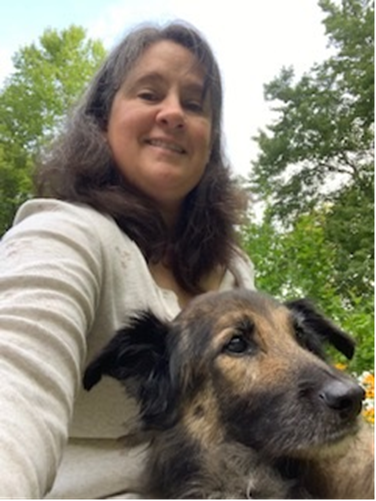Introducing Denyce Gagne, new Enforcement Program Manager for Pesticide Control
The New Hampshire Department of Agriculture, Markets, and Food; Division of Pesticide Control (Division) has a new Enforcement Program Manager. Denyce Gagne comes to the Division after 16-years at the New Hampshire Fish and Game Department where she held a pesticide applicator license to control exotic invasive plants in wildlife habitats. In her new role, she’ll be assisting the Division’s field inspectors with enforcing pesticide rules and educating users about pesticide topics including the United States Environmental Protection Agency’s (EPA) federally mandated Agricultural Worker Protection Standard (WPS).
If you employ agricultural workers, or are employed by or apply pesticides on a farm, forest operation, or nursery—no matter the size— and are engaged in the indoor or outdoor production of plants, then WPS probably applies to you. This includes all agricultural establishments from commercial operations to family-owned farms.

The WPS is intended to reduce the risks associated with pesticide exposure to workers, handlers and their families, and to protect people and the environment from the risks of pesticide use in agricultural production. Recent updates to the WPS include the finalizing of the Application Exclusion Zone, or “AEZ,” rules. The AEZ is the area surrounding outdoor pesticide application equipment during operation. Anyone not actively involved in applying pesticides is prohibited within the AEZ during pesticide applications. The AEZ exists only during the application, moves with the equipment as it travels through the crop, and varies in radius up to 100-feet depending on the application type and droplet size used. It’s important to know, especially with some of the smaller farms in New Hampshire, that the AEZ can extend outside of an agricultural field, onto an abutter’s property, and may encompass buildings, including houses.
In general, annual WPS training of workers and pesticide handlers is required before they perform any work. Training must be conducted by a qualified individual as defined by the EPA, using EPA-approved training materials. If the pesticides to be applied require the use of a respirator, a medical evaluation and annual respirator training and fit tests must be conducted before an applicator can wear the respirator. Recordkeeping is required to document training and respirator assessments. All records must be kept for two years.
By law, all agricultural establishments in New Hampshire are subject to inspections by the Division. Inspectors may show up unannounced to determine compliance with state and federal pesticide usage laws, including WPS. If you have questions regarding compliance, you may visit the EPA WPS website at Worker Protection Standard; contact Denyce Gagne, Division of Pesticide Control Enforcement Program Manager at Denyce.J.Gagne@agr.nh.gov or 603-271-8830; or Rachel Maccini, the UNH Cooperative Extension Field Specialist, Pesticide Safety at Rachel.Maccini@unh.edu or 603-351-3831.
Extension Services & Tools That Help NH Farmers Grow
Newsletters: Choose from our many newsletters for production agriculture
Receive Pest Text Alerts - Text UNHIPM to (866) 645-7010


